Mongolia is a vast country. It is bordered by China and Russia but has its own unique culture. The population is low. A high proportion of the population is still nomadic and follow the traditions that see them return each year to the same summer and winter steppes with their gers for housing, their livestock and traditions.
Naadam is an annual traditional festival in Mongolia. The festival is also locally termed “eriin gurvan naadam” “the three games of men” which seems a bit at odds with our experience where women and girls participated in horse racing, archery and knuckles. Wrestling was the exclusive domain of men.
We were excited to attend a rural Naadam, where we were free to wander between events and to absorb the local colour of traditional costumes, horse riding, and local fare. It was a great family day, hot and dusty, the competition was intense, and as is common in Mongolia, we were made very welcome.
The follow up to this day was the grand Naadam celebrations back in Ulaanbaatar, commencing in Sükhbaatar Square where the Nine White Banners, reportedly made from the tail hair of thousands of stallions from all over the country, are escorted by mounted soldiers from Government House to the stadium. The square was filled, many families in traditional dress, other sporting matching outfits amongst family members, the holiday spirit and excitement evident. Good viewing spots were in demand.
The Opening Ceremony was amazing, colourful, action-packed, so much going on that it was impossible to absorb it all! For the full show, use this link
Travelling the great sweeping valleys or steppes of Mongolia, we visited the Genghis Khan monument, remote monasteries and museums, hiked up to and around a volcanic crater, rode camels and horses, stayed in gers, spent an afternoon with a local family who milked horses for a living, tasting their home-made cheese and clotted cream over cups of hot milk tea, and followed Takhi wild horses in the Hustai National Park.
We found the Mongolian language pretty much incomprehensible, but the hospitality of the locals and the care and knowledge of our wonderful guides spoke volumes.
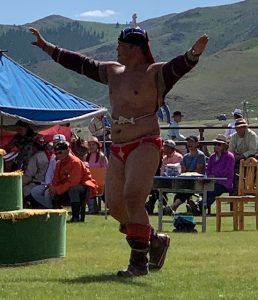
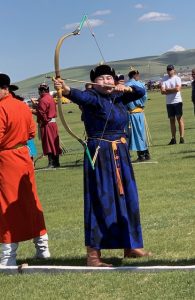
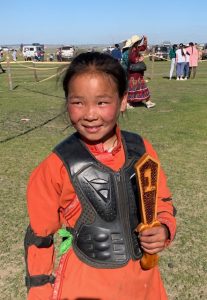
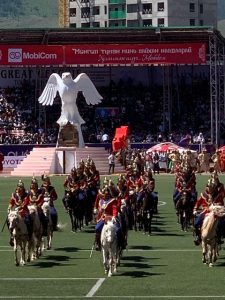
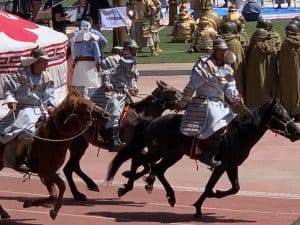
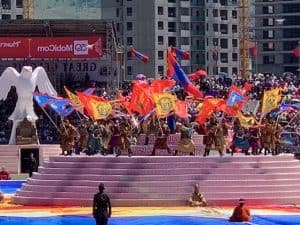
Returned to Recent News